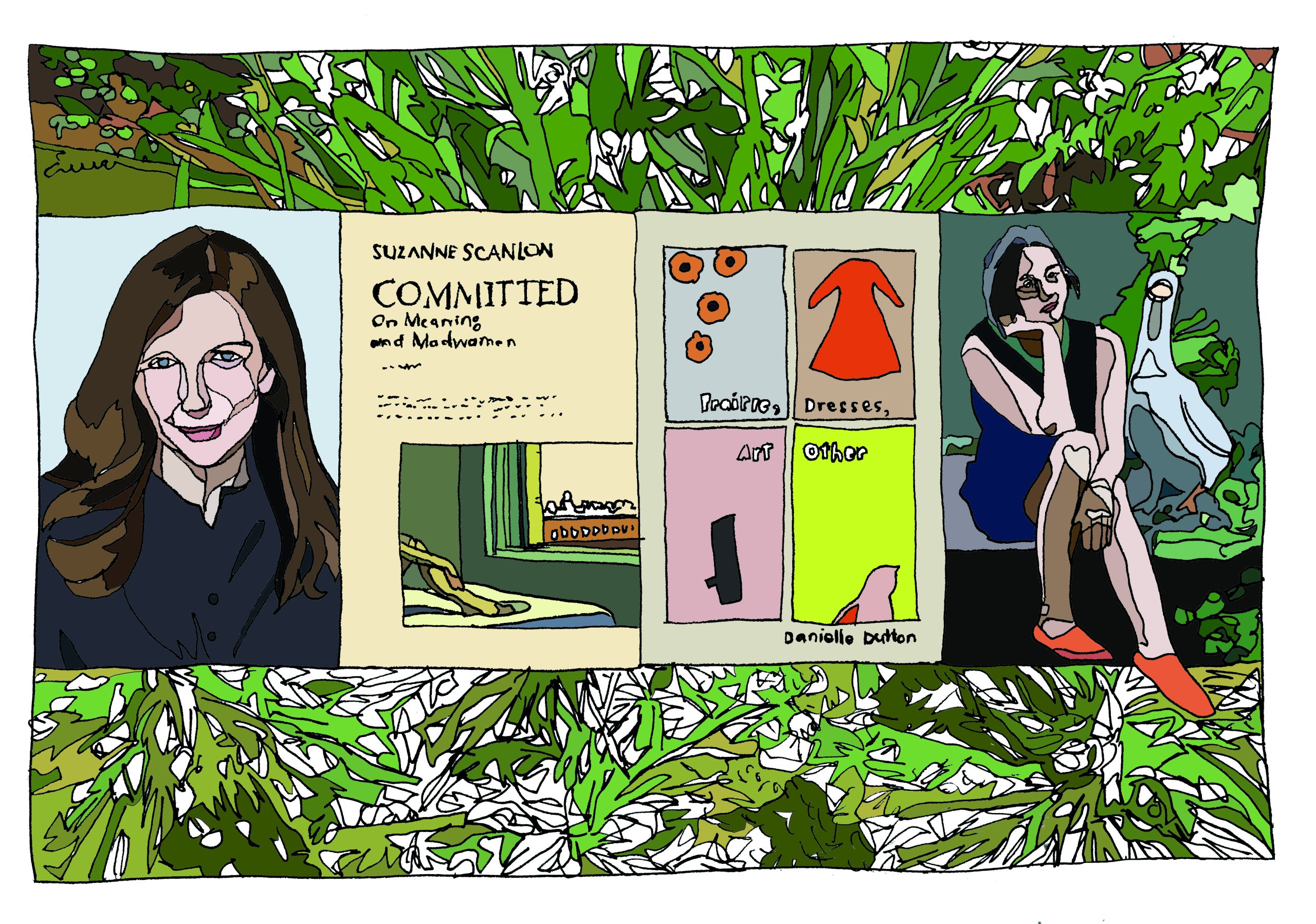essays
Vocational Gratitude and the MFA: A Rebuttal of Sorts to Ryan Boudinot

When I was getting my MFA in 2007, I found myself enrolled in a teaching practicum designed to help me and other prospective MFAs and PhDs on fellowship learn the basics of teaching freshman composition. One day in class, a fellow student raised his hand in response to a question the instructor had asked about the best ways to get students thinking and writing in an exploratory manner and said: “Well, does it matter? They don’t have anything interesting to say anyway.” The comment, deployed with smugness and free-floating antagonism, struck me as terribly depressing. At the time, I was not a newbie in the classroom — I had taught creative writing and English in various forms for roughly 3 years — but neither had I approached the Irish-coffee-sipping, annotating-with-expletives stage in my career that is prevalent in so many satires and, sadly, real life episodes of veteran teacher-hood. Eight years of adjuncting later — first in New York, then Boston and now New Orleans — in which I have taught everything from Sophomore English and Business Writing to Introduction to Creative Writing at the secondary, undergraduate, and non-traditional levels, that throwaway comment still tears at my nerves.
While the gap between college freshman and creative writing MFA students is considerable, novelist and erstwhile-teacher Ryan Boudinot exhibits a similar brand of contempt in his feature for The Stranger: “Things I Can Say About MFA Writing Programs Now That I No Longer Teach In One,” which caused much strenuous debate among book people on the internet this week. That said, I did find myself laughing (darkly) a couple of times over the course of reading Boudinot’s article and some of his points are incredibly valid — especially what he says about the importance of “woodshedding” as an aspiring writer on which he, wisely, ends his screed: “That’s why I advise anyone serious about writing books to spend at least a few years keeping it secret. If you’re able to continue writing while embracing the assumption that no one will ever read your work, it will reward you in ways you never imagined.”
Sound advice.
Moreover, I would imagine that Boudinot intends his article to come as a refreshing breeze of truth-to-power in the swamp of glad-handing and back-pattery which is our present literary moment; that he is bringing the antics of Daniel Tosh and/or Bill Mahr to the book-world at long last; and that by “shooting from the hip” and “telling it like it is” when it comes to the MFA-circuit he is giving vent to the prevailing dissatisfactions of his colleagues.
Fair enough.
I am somewhat of a crank myself, especially in the glow of my computer screen. A good diatribe can be good for the soul whose compass is, by and large, decency pointing. Mark Twain, Edmund Wilson and Edgar Allan Poe were all of them fantastic at it.
What I did, however, find pernicious and inconsistent in Boudinot’s article are the assertions he makes that degrade his “hardworking, thoughtful” former students and by extension the teacher-student contract at large, while severely limiting the breadth of the greater literary community.
Before he is even properly out of the gate, Boudinot writes: “The vast majority of my students were hardworking, thoughtful people devoted to improving their craft despite having nothing interesting to express and no interesting way to express it.” Then, under the first section heading of his article? listicle? essay? blog post? rant? titled, “Writers are born with talent,” he goes on to say: “Either you have a propensity for creative expression or you don’t… It’s simply that all writers are not born equal. The MFA student who is the Real Deal is exceedingly rare, and nothing excites a faculty advisor more than discovering one. I can count my Real Deal students on one hand, with fingers to spare.”
Well, fine. Apart from the murkiness of defining true “talent” and what Boudinot calls the “Real Deal,” not to mention the self-importance of the notion that “faculty advisors” like Boudinot are there to “discover” talent as opposed to, say, nourishing it in their students — in a contradictory turn, Boudinot titles a later section heading, “You don’t need my help to get published” — it’s unclear at whom the campaign is directed.
If directed at students, well, then that’s a shame. There is probably one, if not multiple of Boudinot’s former students out there somewhere hanging their heads in embarrassment and self-loathing for allowing themselves to be taken in by him on the basis of collegiality and mutual respect.
If directed at writers, well, then we can take it. Nothing worse has been said about us in Goodreads reviews or, for that matter, writing workshops. And very few writers or readers have been laboring under the delusion all their lives that a story by Joyce Carol Oates (hardworking, committed) is equal to one by Flannery O’Connor (talented, revelatory).
And if directed at MFA programs themselves, well, then good luck. While stating that you cannot teach someone to become a good writer is not unreasonable in and of itself, it is by no means prohibitive of trying and is, furthermore, predicated on a few things you cannot reasonably assume about people obtaining an MFA: 1. That all of them enter into a program to become famous writers. 2. That pointing out such a fallacy is going to effectively discourage anyone from obtaining such a degree. 3. That there are no other tangible benefits to getting an MFA — a graduate degree in the study and practice of literature — apart from pursuing ever-elusive “Real-Deal-ness” and the skillset that will enable you to write that singular story, or poem, or essay which will enable you, in turn, to become a working writer with a publication bio.
Did I get an MFA in fiction?
I did.
Am I still paying loans?
You bet.
Do the collective profits I’ve made from now two books of fiction and a slew of publications amount to an infinitesimal fraction of what I spent on said degree?
On Garth Risk Hallberg’s advance, I declare it.
And yet even if I had never been published — even if I had never been told by my wonderful and nurturing professors that I possessed a drip of “talent” — even if I had “woodshedded” every last bit of the Cormac-McCarthy-redolent juvenilia I produced in the course of 4 workshops and 3 post-curricular faculty advisements — even then, I still would’ve happily not attended my MFA graduation ceremony feeling privileged and enriched to have had the luxury of devoting myself with boozy asceticism to two years of living and breathing my craft. (It may be unfair of me to assume that Boudinot is one of those writers for whom the process of sitting down in his pajamas to commune with the denizens of imagined worlds is an inexorable agony he would not wish on anyone.)
Yet here’s the crux with Boudinot’s article. He doesn’t take aim with precision enough and he isn’t assertive enough in his ribbing; he’s not going to take down the MFA blimp or else, if he is, he won’t come out and say it. Flippantly proclaimeth he: “Here are some of the things I learned from these experiences.” His words are contemptuous and harmful, I think, because they take no proper shape. They are interested in “woodshedding,” in Boudinot’s terms, his students, the MFA system, bad writing, among a host of other fears, yet nothing emerges from that conflagration redemptive or otherwise. Clickbait accomplished.
I subtitled this piece “A Rebuttal of Sorts” because you can’t argue against a non-argument. Boudinot’s freeform mean-spiritedness does nothing but make bookish people feel crappy.
Case in point the subject heading: “No one cares about your problems if you’re a shitty writer” — one in which section Boudinot states, “Just because you were abused as a child does not make your inability to stick with the same verb tense for more than two sentences any more bearable. In fact, having to slog through 500 pages of your error-riddled student memoir makes me wish you had suffered more” — and then, with un-self-conscious irony, “It’s not important that people think you’re smart.”
Another of Boudinot’s maxims: “If you aren’t a serious reader, don’t expect anyone to read what you write.” In this section, after citing an incident in which Boudinot assigns an especially thirsty “Real Deal[er]” “three big novels for the period between semesters” “almost as a joke” — he chooses David Foster Wallace and Thomas Pynchon with a dash of Roberto Bolano, though what these authors’ most tumescent works are liable to teach a fiction MFA about crafting a competent short story, the understandable standby of such programs, is unclear — Boudinot says that, “Students who claimed to enjoy ‘all sorts’ of books were invariably the ones with the most limited taste. One student, upon reading The Great Gatsby (for the first time! Yes, a graduate student!), told me she preferred to read books ‘that don’t make me work so hard to understand the words.’ I almost quit my job on the spot.”
The Anglo-centrism and fuddy-duddy-ness of this statement withstanding — has any one ever lapsed into premature brain-death from not having read The Great Gatsby, one of the most overrated “classics” I can think of? — Boudinot’s assertions here smack of superciliousness and vainglory. Just what is he railing against in this passage? The decline of American culture at large? Writers just getting their sea legs as readers? The students who looked up to him in the low-residency MFA Program in which he was teaching at the time, whose Fitzgerald-deprived coarseness threatened to unseat the cradle of his art?
West-Eggers, clearly, every one.
Which brings me to what, as a reader and writer, I suspected the gist of this piece really was. By launching jibes at incurious readers and talentless writers Boudinot seems to be distancing himself from the notion of writer-as-vocation, a phenomenon for which the proliferation of MFA Programs feasibly could be held to account. The logic goes that if you can go to school to learn, say, how to weld or salvage dive, then you can also go to school to become proficient in creative writing, which Boudinot sees as an insult to the vaunted craft and moreover futile, “Real Deal[ers]” excepted.
Because Boudinot’s craft is exalted, elusive — a proving ground for real-ass minds. Fake-ass ones need not apply.
Yet by viewing writing as a craft that chances are you’ll fail to learn, Boudinot is doing something as damaging to education as he believes is being done to the craft of writing. Namely, he is doing what I have seen done by dozens of parents of students at the private schools where I’ve taught and by dozens of students once they arrive at undergraduate institutions: viewing education as a means to an end instead of a valuable end itself. Boudinot seems to think about MFA Programs: if you won’t emerge from one a successful working writer, why bother?
What he doesn’t realize is that by making writing and writing know-how into instruments that fail he is pushing them further into the vocational camp, and further away from the profound alchemical mystery he makes them out to be. And in the end, is that such a bad thing? If writing is in its essence a deep-sounding of human experience in all its variety, unreality and inconsistency then why would we not want to deepen the pool of those who would practice it to people who, yes, haven’t read The Great Gatsby, to people who start writing later in life, to people with chaotic day-to-day lives who could use some advice from experienced writers on how to make room for the practice they love, to people who don’t have the verve of Colson Whitehead but find their voice in Larry Brown?
No matter which way you decide to look at it, writing in its earliest stage takes the form of an apprenticeship, learned and rehearsed. Whether this apprenticeship takes place between the writer and her dog-eared copy of Beloved, and the writer and the MFA professor she pays to read and comment on her work makes little difference. Apprenticeships leads over time to vocations and vocations, worked hard at, amount to a life.
MFA Programs and the teaching of writing make a sacred space for such practices in a culture that decreasingly values words, stories and the exactitude of nuanced thought. They are not a long con on the part of universities, as Boudinot implies, but an opportunity for people with stories to tell to see those stories and the making of them through the lens of craft and sustained practice. If the writer so wishes, they’re there for a price, even if the results never make it to print.
The professor who would come to be my mentor in the MFA Program I attended began our first workshop together in a way I will never forget. He told us to view workshop and the greater program of which we were part not as something medicinal, engineered to intravenously alter our creations into some predetermined shape, but rather as one of “the last great collective art forms,” whereby the writing professor along with twelve fellow writers around a table rethink and refigure a story together.
“In this way,” he said, “we are writing as one.”
I do believe those were his words.









